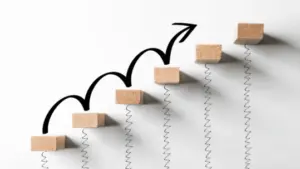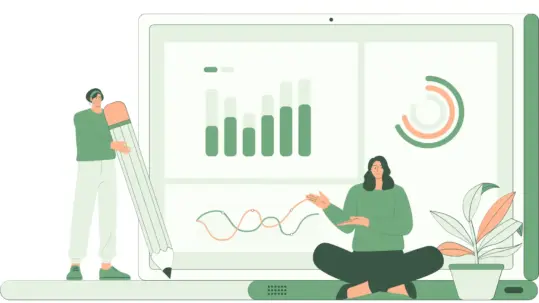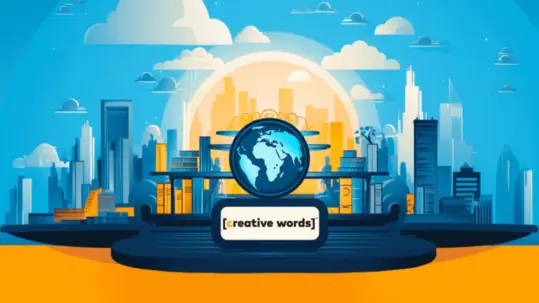
09 Jun TV series translator: what they do and how much they earn
TV series have conquered a prominent place in contemporary culture, offering quality entertainment to an ever-growing international audience. However, behind every successful TV series there is translation and adaptation work that allows the audience to enjoy the stories in their native language, preserving the essence and quality of the original dialogue. In this article we will explore the crucial role of the TV series translator, analysing the skills required, the challenges faced and the opportunities for professional growth.
The profession of TV series translator: requirements and skills
The profession of TV series translator is a crucial figure in the process of adaptation and localisation of TV productions for an international audience. To do this job well, it is necessary to possess a number of requirements and skills.
First of all, a solid knowledge of languages is essential. The TV series translator must be fluent in the source language, i.e. the language in which the original dialogues of the series were recorded, as well as in the target language. It is important to have an excellent command of the grammar, vocabulary and linguistic nuances of both languages in order to make accurate translations and to preserve the intent and essence of the original dialogues.
Furthermore, writing and adaptation skills are crucial: in addition to translating the text, it is necessary to adapt it to the target language in a way that is natural and fluid for the target audience. This requires a thorough understanding of cultural nuances, idioms and idiomatic expressions, as well as the ability to render puns or humour present in the original text effectively in the target language.
The ability to meet deadlines is another important aspect: production deadlines for TV series are often very tight, and the translator must be able to work efficiently without compromising the quality of the work. Good time management, organisation and the ability to work under pressure are key skills to ensure that translations are delivered on time.
Finally, familiarity with translation tools is equally crucial. As we often say, the use of CAT tools and glossaries can help ensure terminology consistency and facilitate workflow. The ability to use these resources effectively can improve the efficiency and accuracy of translations.
What challenges does the profession present?
The translation of TV series presents a number of unique challenges that require the translator to be extremely careful and creative in the adaptation process. Let’s look at some of them:
- Informal language and slang used by the characters: often, dialogues in TV series are characterised by colloquial language, slang and expressions typical of the source language. The translator must find the appropriate equivalent in the target language that captures the informal and authentic tone of the characters without sounding artificial or out of place.

- Idiomatic and cultural expressions: each language has its own peculiar expressions that may be difficult to translate literally without losing their original meaning. The translator should try to recreate the effect of the original expression by using equivalent idioms or expressions in the target language in order to maintain the atmosphere and understanding of the target audience.
- Humour and puns: TVtv series often rely on puns specific to the source language, which can lose their comic effect in translation. The translator must look for creative solutions to render the humour in the target language, trying to maintain the original comic effect as faithfully as possible.
- Text continuity and consistency: the translator must ensure that the translated text is consistent in terms of terminology, writing style and character tone. He or she must pay special attention to details, such as character names, places or cultural references, to maintain consistency throughout the series and to avoid confusion or discrepancies in the plot.
Facing these challenges requires the translator to have in-depth knowledge of the languages involved, the target cultures and the narrative dynamics of the TV series. Interpretation and adaptation skills are required to maintain authenticity and an engaging experience for the target audience, overcoming language and cultural barriers.
Professional growth and job opportunities
To pursue a career as a TV series translator, it is advisable to acquire a solid education and obtain any relevant certifications. There are degree courses and training programmes specifically for audiovisual translation and the localisation of TV series. These courses offer the opportunity to acquire the necessary skills and to familiarise oneself with the translation tools used in the industry. In addition, obtaining industry-recognised certifications, such as those offered by professional associations, can increase credibility and job opportunities.
 Subsequently, it is important to take care of one’s professional growth: this can be done through specialisation and continuous training. Participating in masters or advanced courses specifically for audiovisual translation offers the opportunity to deepen the knowledge and skills required in the sector. In addition, participating in conferences and workshops offers access to experts in the field, new working methods and opportunities to expand your professional network.
Subsequently, it is important to take care of one’s professional growth: this can be done through specialisation and continuous training. Participating in masters or advanced courses specifically for audiovisual translation offers the opportunity to deepen the knowledge and skills required in the sector. In addition, participating in conferences and workshops offers access to experts in the field, new working methods and opportunities to expand your professional network.
In addition, building a solid portfolio is crucial for demonstrating one’s skills and attracting potential clients or employers. The portfolio should include samples of translations of TV series, demonstrating the ability to deal with the specific challenges of this field, such as adaptation, colloquial language and maintaining humour. Any experience or collaboration with translation agencies or streaming platforms should also be included.
The job opportunities to become a TV series translator are manifold. You can work for translation agencies that specialise in audio-visual translation, which manage adaptation and localisation projects for TV networks and streaming platforms. Some TV networks and streaming platforms may also have in-house departments dedicated to the translation and dubbing of TV series. In addition, many TV series translators choose to work as freelancers, offering their services directly to producers, distributors or dubbing agencies.
How much does a TV series translator earn?
As we have seen, the profession of TV series translator plays a key role in ensuring that content is accessible and understandable for a global audience. But how much does a translator who does this job actually earn? Let’s look at it together.
Salaries for TV series translators can vary considerably depending on several factors. First of all, experience plays an important role in determining a translator’s salary. Those who have extensive experience in the field and have worked with successful TV series can negotiate higher rates. At the same time, beginners may initially earn less until they accumulate a solid reputation in the field.
Furthermore, the type of contract influences a translator’s remuneration. Some translators may work as freelancers and set their own rates, allowing them to negotiate according to the complexity of the project and their experience. Other translators may be employed by translation agencies or production companies, which set fixed rates or offer monthly or annual salaries.
It is important to bear in mind that the salary earnings of a TV series translator can vary considerably from project to project and from country to country. For example, successful TV productions with a large international audience may offer more generous fees, as the quality of the translation is crucial to maintain the integrity and meaning of the series.
In conclusion, the earnings of a TV series translator depend on several factors, including experience and type of contract. Despite variations in fees, working as a TV series translator can offer satisfying and lucrative professional opportunities for those who are passionate about languages, culture and the television industry.
Creative Words is an ISO-certified translation agency with extensive experience in the field of audiovisual translation. If you need to translate important documents for your company, please contact us without obligation: we will evaluate your situation and needs together with you, proposing a solution in line with your needs, expectations and budget.






